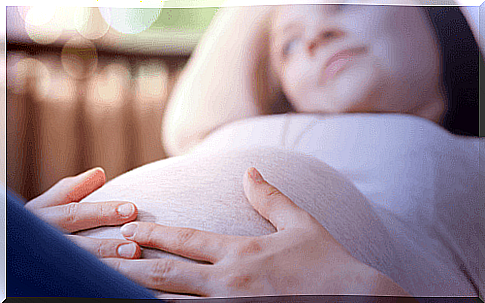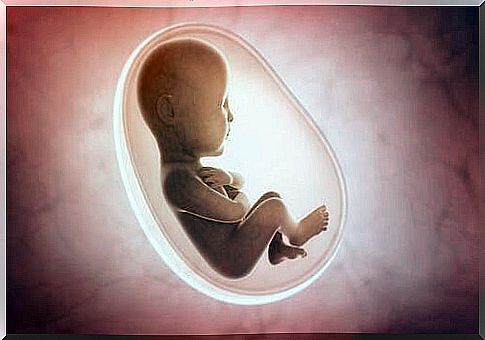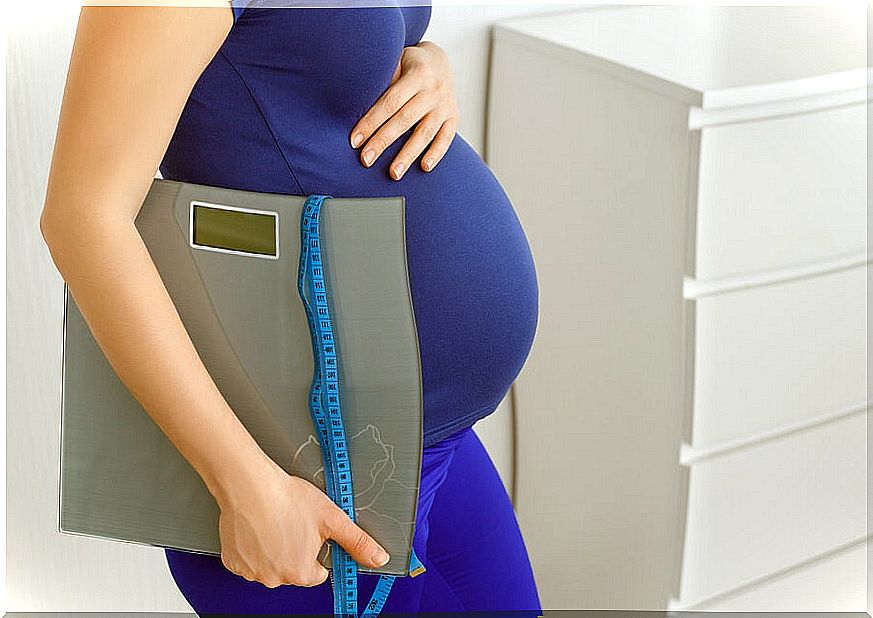Detachment Of The Placenta During Pregnancy

The abruption of the placenta is a serious condition, which occurs when it separates from the wall of the uterus before the end of the pregnancy cycle. The placenta is responsible for supplying the baby with oxygen and nutrients from food through the umbilical cord; if its abruption is considerable, it can imply a terrible risk to the life of the baby.
This delicate condition is generally suffered by a very low percentage of the total population of pregnant women; there is even talk of only 5%. It also happens that many pre-mothers who have it only suffer the effects of a partial detachment, in which only a small part of the placenta is separated from the wall of the uterus.
To learn much more about this drastic problem, we detail below each aspect related to the abruption or detachment of the placenta during pregnancy.
Placental abruption during pregnancy
First of all, it is necessary to explain what the placenta is and what its functions are. The placenta is known as a sac or pouch that attaches to the uterus; In addition to the functions mentioned above, it is responsible for producing a group of hormones that are linked to pregnancy, such as progesterone, estrogen, and chorionic gonadotropin.
Now, the placenta attaches itself to the uterus through multiple blood vessels. When it detaches, it causes hemorrhage or bleeding and, of course, pain, as a result of the rupture of these vessels.
However, not all placental detachments — or abruptio placentae , as it is known in medical terms — have the same degree of separation. In obstetrics, three types of degrees are known.
Degrees of placental abruption
There are three grades to determine the type of placental abruption that the mother has suffered. They are described below:
Grade 1 or mild detachment
The symptoms of the first degree of placental abruption are little bleeding and little or even no contractions. This degree of detachment does not represent a real danger for the fetus, but it is recommended that the mother follow a treatment recommended by the specialist and rest.

Grade 2 or moderate detachment
When a pregnant woman has a second-degree detachment, the symptoms intensify, there is heavy bleeding and contractions. These, in addition, begin to affect the health of the baby, since it presents changes in its heart rate. It is important to clarify that, if this occurs between weeks 24 and 34 of pregnancy, the patient must be hospitalized.
Grade 3 or deep detachment
In these cases, there is talk of a total detachment of the placenta, so the mother will have to undergo an emergency cesarean section immediately.
Due to the abundance of bleeding, it is customary to give the pregnant woman a blood transfusion. In addition, it may be at the discretion of the treating physician to perform a hysterectomy as well.
Factors that may influence the placenta to detach
Placental abruption is not a very common pathology and the factors that influence its development are not very clear either. Of course, a trauma can cause a placental abruption, but among the causes that can affect we also have:
- Smoking
- Multiple pregnancies
- History of detachments in previous pregnancies.
- Diabetes.
- Pregnant older than forty years.
- Infections in the uterus.
- If you have more amniotic fluid than the average.
- The use of drugs such as cocaine.
- Arterial hypertension.
Consequences in the mother’s organism due to the abruption
The effects on the mother’s body are clotting problems; weakness from abundant blood loss, which will lead to transfusions and kidney or heart failure. In severe cases, a hysterectomy will need to be performed.

Consequences on the fetus due to abruption
In your body, the effects of abruption are presented as lack of oxygen, increased palpitations, premature birth and less than normal growth, due to not having received the nutrients from food correctly.
As a final point, you should know that, in most cases, this condition can occur randomly. However, you can reduce the risks by having a healthy pregnancy and with proper check-ups with your obstetrician.










